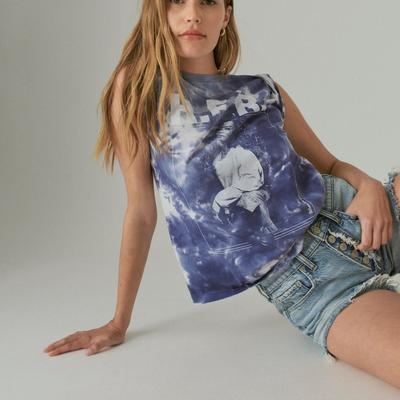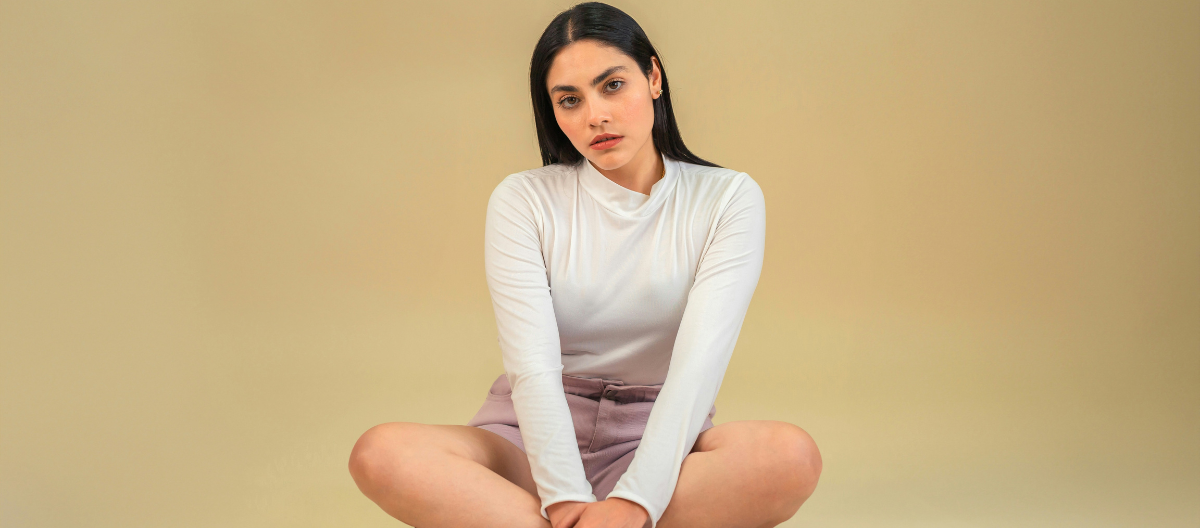Hey Diva dressing fans! When the items we love coincide with brands we work with, Diva dressing will use Paid Links in our articles. If you decide to click on these links and purchase the product, we get a small commission. Our Opinions Are Our Own, but we do add Paid Links as a way to offer these products at no added cost to our readers. Want to know more? Click Here to check out our Terms of Use anytime!
Fashion is often considered a reflection of personal style, but it goes much deeper than that. The clothing we choose to wear plays a significant role in shaping our identities and how we present ourselves to the world. From cultural expressions to personal statements, fashion serves as a powerful tool for communication, creativity, and even empowerment.
One of the most apparent ways clothing reflects who we are is through self-expression. The outfits we choose communicate aspects of our personalities, moods, and even beliefs. Whether it’s a bold, colorful outfit that showcases confidence or a minimalist, neutral palette that conveys simplicity, our clothes tell a story about who we are without us having to say a word.
- Personal style: Fashion allows individuals to express their unique tastes and preferences. Some people might prefer classic, timeless pieces, while others embrace cutting-edge trends or vintage aesthetics. Each choice becomes a part of one’s personal identity.
- Mood and emotion: Many people choose their outfits based on how they feel that day. Bright colors may be worn on days when we feel energized and happy, while darker, muted tones might reflect a more subdued or introspective mood.
- Statement-making fashion: Clothing can also reflect our values and beliefs. Graphic tees with slogans, statement accessories, or even the decision to wear sustainably produced garments can send a message about our ethical and social standpoints.
Cultural and Social Identity
Fashion is deeply rooted in culture, and what we wear often reflects our cultural backgrounds and social affiliations. Throughout history, different cultures have used clothing to signify traditions, social status, and community belonging. Today, cultural influences are still evident in fashion choices, with people using clothing to celebrate and maintain their heritage while also embracing global trends.
- Cultural significance: Traditional clothing, such as saris, kimonos, or indigenous regalia, often represents cultural pride and identity. Wearing such garments can be a way of staying connected to one’s roots and expressing cultural values.
- Social groups and subcultures: Clothing also plays a role in identifying with certain social groups or subcultures. From punk rockers in leather jackets to professionals in tailored suits, fashion often signals the communities or lifestyles we associate with.
- Globalization of fashion: With the blending of global cultures, fashion has become a way to celebrate diversity. Many people now mix and match elements from different cultural styles, reflecting a more interconnected world.
Fashion’s Influence on Confidence and Self-Perception
What we wear can have a profound impact on how we feel about ourselves. Research shows that clothing can influence our mood, confidence, and even our performance in various situations. This concept, known as “enclothed cognition,” suggests that the clothes we wear not only reflect our identity but also shape how we perceive ourselves.
- Confidence booster: Wearing clothing that makes us feel good can significantly enhance our self-esteem. A well-fitted dress, a sharp suit, or even a favorite pair of shoes can give us the confidence to take on challenges and feel empowered.
- Dressing for success: Many people adhere to the idea of “dressing for the job you want,” which highlights how fashion can influence professional opportunities. Power dressing, for instance, is a popular way to exude authority and competence in the workplace.
- Clothing and mental health: Fashion can also play a role in mental health. Wearing comfortable, aesthetically pleasing clothes can improve one’s mood, while disheveled or ill-fitting clothing might negatively affect self-image and emotional well-being.
Shaping Social Perceptions
While clothing reflects who we are, it also shapes how others perceive us. Fashion can influence how we are treated and judged in social, professional, or even casual settings. This social perception, while sometimes positive, can also lead to stereotyping based on appearance, reinforcing the importance of mindful fashion choices.
- First impressions: Research suggests that first impressions are often formed within seconds, and clothing plays a major role in this. A polished outfit can leave a positive impression, signaling professionalism, attention to detail, and respect for the occasion.
- Stereotyping and assumptions: Unfortunately, clothing can also reinforce stereotypes. For example, certain styles may lead people to make assumptions about a person’s lifestyle, career, or social class. This can result in unfair treatment or misjudgment based solely on appearance.
- Challenging norms: On the flip side, fashion can be a tool for challenging societal norms and expectations. Individuals who embrace unconventional or avant-garde styles often push back against stereotypes, using their clothing as a form of protest or self-empowerment.
Fashion as a Tool for Change
In many cases, clothing is not just a reflection of who we are but a way to inspire change. Fashion has long been a medium for activism, whether through slogans on clothing, the rise of eco-friendly fashion, or movements like gender-neutral fashion that challenge traditional norms.
- Fashion activism: Designers and individuals alike use clothing to promote causes such as sustainability, gender equality, or body positivity. Wearing eco-conscious brands or unisex clothing lines can send a message that challenges fast fashion or traditional gender roles in fashion.
- Inclusivity in fashion: As discussions around size inclusivity, racial diversity, and accessibility grow in fashion, more people are using clothing to advocate for representation. By supporting inclusive brands or wearing pieces that celebrate diversity, consumers can help drive the industry toward more equitable standards.
- Empowering others through fashion: Wearing clothing that reflects one’s values can also inspire others to embrace their individuality or stand up for causes they believe in, turning personal fashion choices into a catalyst for broader societal change.
Evolving Identities and Fashion Choices
As we evolve throughout our lives, so do our fashion choices. The styles we adopt often shift in response to major life changes, personal growth, or external influences. Whether transitioning into new career phases, adapting to changes in body image, or exploring different aspects of one’s personality, clothing can mirror these transformations.
- Life transitions: Significant moments such as starting a new job, becoming a parent, or reaching personal milestones often lead to changes in wardrobe. These transitions reflect shifts in identity and the way we wish to present ourselves to the world.
- Experimentation and growth: Fashion allows individuals to explore different facets of their identity, from trying out bolder trends to embracing more understated looks. This fluidity in fashion enables continuous growth and experimentation in self-expression.
- Aging and style: As people age, their clothing choices may shift to prioritize comfort, function, or a more refined aesthetic. However, aging doesn’t mean letting go of personal style—many individuals continue to express their creativity and confidence through fashion at every stage of life.
Here are some products that can help
Lucky Brand Printed Smocked Detail Blouse $20.99
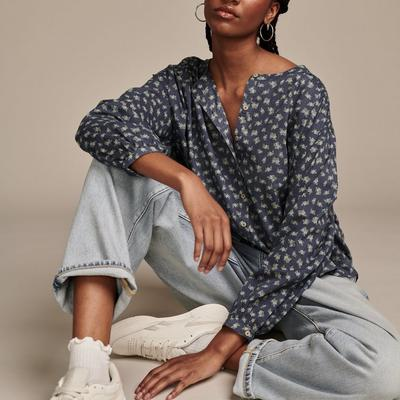
Lucky Brand Utility Shirt Dress $20.99
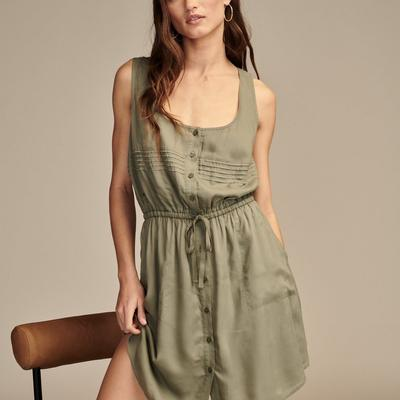
Lucky Brand Pintuck Pleasant Blouse $20.99
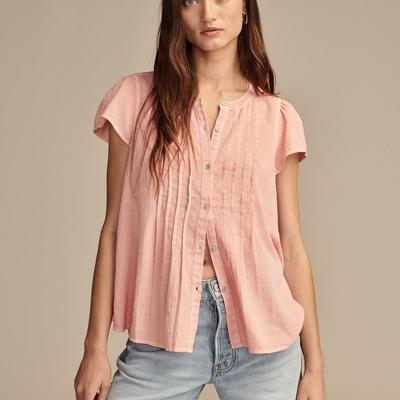
Lucky Brand Long Sleeve Dot Wrap Mini Dress $24.49
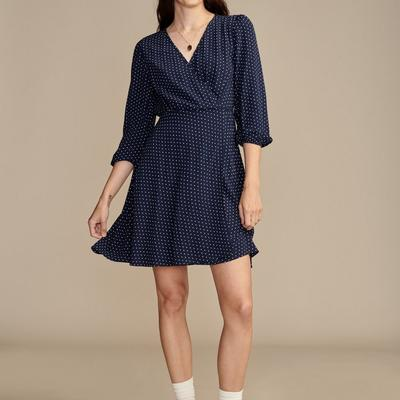
Lucky Brand Mirror Floral Classic Crew $24.75
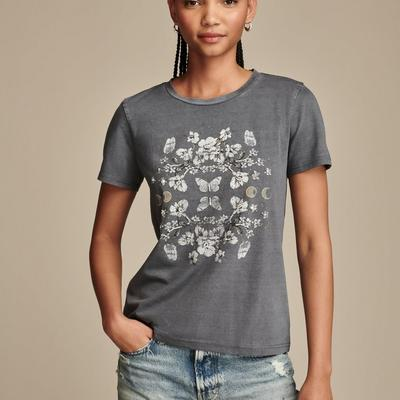
Lucky Brand Short Sleeve Market Dress $27.99

Lucky Brand Classic V-Neck $6.99
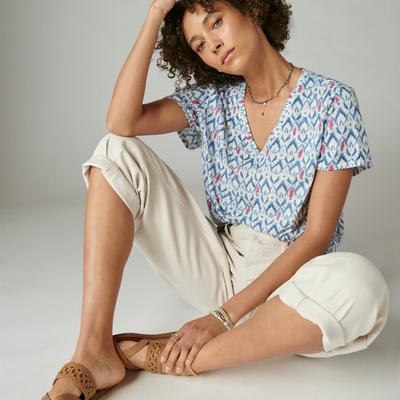
Lucky Brand Miles Classic Crew Tee $6.99
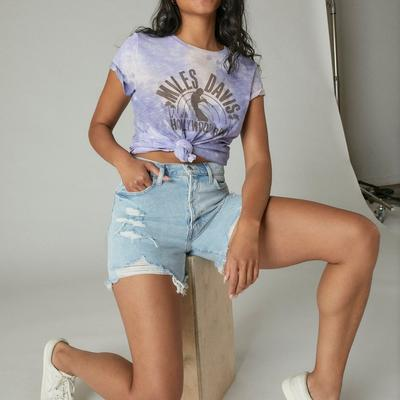
Lucky Brand Her Classic Crew Tee $6.99
